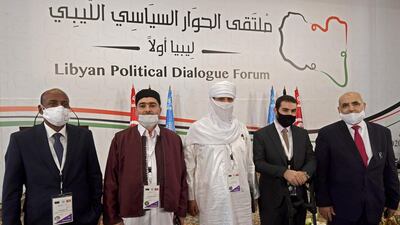The UN has urged Libyans to work together on a path to peace as rival factions gathered on Monday in Tunisia for six days of UN-brokered talks with a goal of drawing a roadmap to presidential and parliamentary elections.
The negotiations are the latest in a stream of meetings intended to end the power vacuum left by the 2011 removal and killing of Libyan dictator Muammar Qaddafi, and the fight to fill it.
Previous diplomatic attempts to end the conflict failed, but the ceasefire agreed last month in Geneva coupled with heavy international pressure add impetus to the latest talks.
October’s ceasefire deal has allowed for the resumption of economically vital oil production and spurred progress on efforts to end years of political deadlock.
The country is currently split between a government in the capital, Tripoli, and authorities based in the east.
UN Secretary General Antonio Guterres appealed to the 75 UN-selected Libyan delegates to support the process.
“Now it’s your turn to shape the future of your country. Your commitment to this process will help restore Libyan sovereignty and democratic legitimacy of Libyan institutions,” he said in a pre-recorded message to the forum.
Tunisian President Kais Said, who is hosting the talks in the town of Gammarth, called the forum “historic by all measures” and echoed the UN call for co-operation from both sides.
“There is no room for dividing Libya. Some talk about East and West, but the Libyan people are one,” he said. “The solution is for the Libyan people to regain their full sovereignty.”
Stephanie Williams, the top UN official in Libya, sought to temper expectations for the Gammarth talks. These negotiations “will not resolve all of Libya’s problems, but if we fail to solve any of them, future resolution becomes impossible,” she said.
A new government, expected to be created by the ongoing UN-brokered talks, would “launch national reconciliation, combat corruption and restore public services,” Ms Williams said.
Before the talks started, she told journalists: “Libya now has an excellent opportunity which will allow it to get out of the conflict tunnel, if all the interlocutors assume their responsibilities and respect their commitments at the end of this dialogue.”

